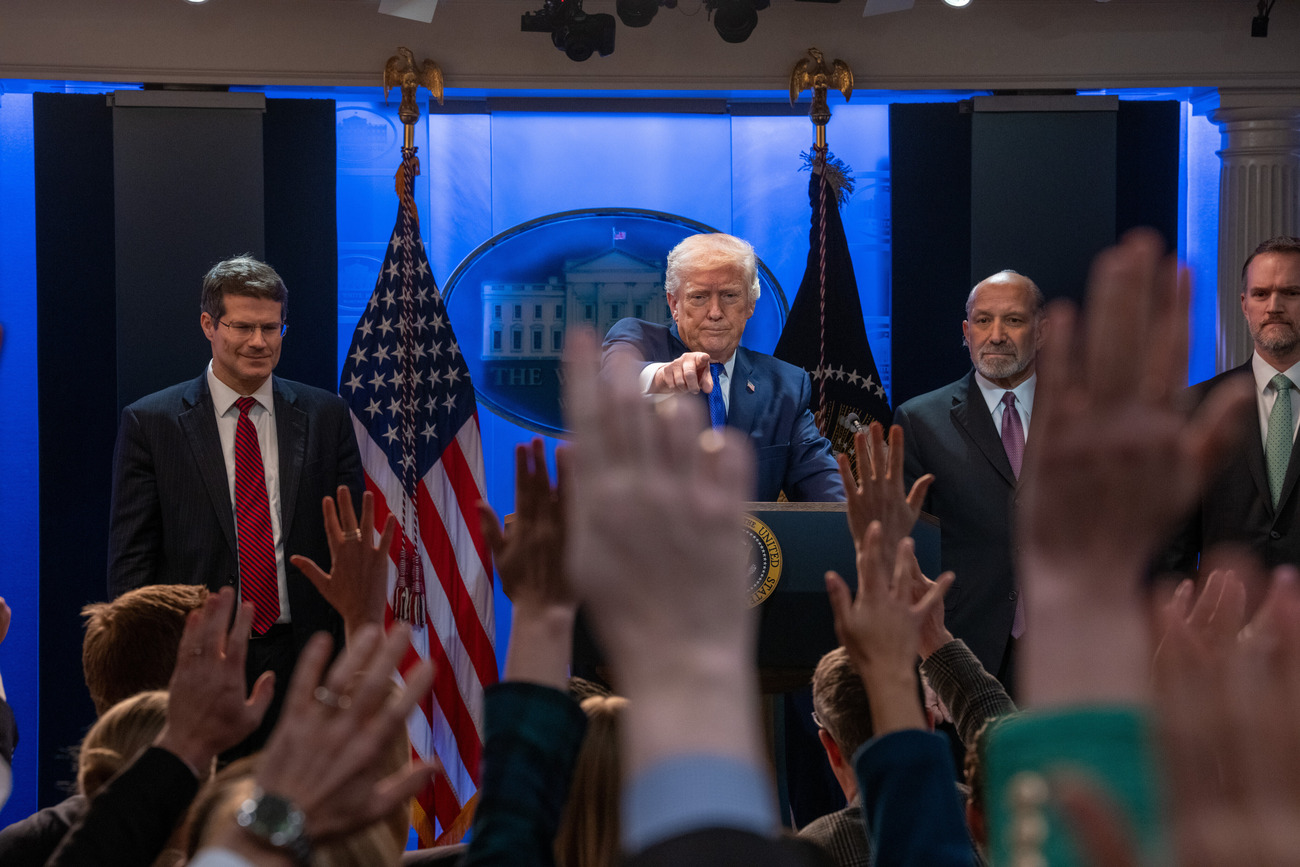Congressional Update: Taking Action on Trade
Congressional Update: Taking Action on Trade
AS/COA takes a look at the 112th Congress' activity related to pending free-trade agreements with Colombia and Panama, as well as extension of the Andean Trade Preference and Drug Eradication Act.
The 112th Congress is now in session and committees in both chambers have gotten off to a fast start, laying the framework for their priorities relating to trade and the Western Hemisphere. To highlight activity, AS/COA Online outlines bills, resolutions, hearings, and congressional delegations covering the pending free trade agreements—particularly with Colombia and Panama—and the extension of the Andean Trade Preference Act.The House Ways and Means Committee held a hearing on February 9 with U.S. Trade Representative Ron Kirk as a witness. Representative Kirk testified that President Barack Obama had “the objective of resolving the outstanding issues as soon as possible this year” to move the Colombia and Panama trade pacts forward. However, he noted that protection of labor rights lay at the core of delays to pass the Colombia and Panama trade pacts and that “[a]ny timetable will be contingent on the successful resolution of these issues.” The Senate Finance Committee has not held or announced hearings regarding trade.
On January 25, the Ways and Means Committee also held a hearing on the pending Colombia, Panama, and South Korea FTAs. The committee concluded that it would continue to press the Obama Administration until all three pending agreements were passed. Seeking to highlight the importance of trade, the Committee also posted an online “Colombia Trade Ticker,” which provides a live tally of days since the Colombia FTA gained signature in November 2006 as well as estimated tariffs imposed on U.S exports to Colombia since then. At the time of this article, the ticker showed that 1,542 days had passed since the FTA was signed and began awaiting congressional approval while also displaying the $ $3,334,338,470 imposed on U.S. exports to Colombia since the agreement was signed.
Extension of the Andean Trade Preference and Drug Eradication Act
The Andean Trade Preference and Drug Eradication Act (ATPDEA, also at times referred to as ATPA) will expire on February 12, due to House leadership pulling the bill that would have extended the measure until June 30. The Act aims to promote economic development, democracy, and export diversification, in addition to supporting crop-substitution programs for Andean farmers. ATPA has provided longtime tariff preferences for Colombia, Peru, and Ecuador since it was enacted in 1991, although Bolivia stopped receiving benefits in June 2009 due to concerns that La Paz had not satisfied the program’s eligibility requirements related to counternarcotics cooperation.
After a hearing by the Ways and Means Committee, Chairman Dave Camp (R-MI) stated that neither the ATPDEA nor Trade Adjustment Assistance, which provides training for workers who have been laid off due to outsourcing, will be voted on this week. Camp told reporters that the two measures would likely be split up and voted on separately next week.
With a new Majority in the House and Camp at the helm of the Ways and Means starting in January, the Committee has put trade high on the agenda. While there are no scheduled votes for the pending free trade agreements (FTAs) with Colombia or Panama in the House or Senate, congressmen have introduced legislation, planned travel, or held hearings on the topic of trade.
The Senate has introduced two pieces of trade-related legislation. Senator Mike Johanns (R-NE) introduced Senate Resolution 20, which urges for the United States to immediately approve the pending free trade agreements with South Korea, Colombia, and Panama as a package. While introducing the resolution, Johanns stated: “[W]ith our country's unemployment rate still unacceptably high and our trade competitors rapidly leveling the playing field for their workers, it is imperative that President Obama send the trade agreements…for approval.” No equivalent legislation exists in the House, but the Senate resolution currently has 14 cosponsors and has been referred to the Senate Finance Committee. No timeline has been set for the committee’s vote.
On January 25, Senator Rob Portman (R-OH) and Connecticut Senator Joe Lieberman (I-CT) introduced S.98, the Creating American Jobs through Exports Act of 2011. This bill voices congressional support for passing the three pending bilateral trade pacts. “[I]ncreasing our nation’s exports is a sure way to create jobs, strengthen our domestic manufacturing base, and accelerate our economic recovery,” said Lieberman. As data in the latest issue of Americas Quarterly shows, while many elected leaders in Washington may vote “no” on free-trade legislation, their states do not economically benefit from those votes. Passage of FTAs with Chile, for example, dramatically increased exports for Mississippi, Alaska, and Vermont.
No companion legislation to S.98 currently exists in the House.
Apart from legislation, Senate Finance Committee Chairman Senator Max Baucus (D-MT) announced he will lead a trade mission to Colombia and Brazil the week of February 20, during the Senate recess, to discuss economic and trade issues in both countries. Agricultural and business leaders from Montana will join the delegation. The agenda for Colombia includes discussions of the pending U.S-Colombia Free Trade Agreement while the focus of the Brazil trip includes the Doha Round of World Trade Organization negotiations, as well as visits to see areas devastated by recent flooding.







